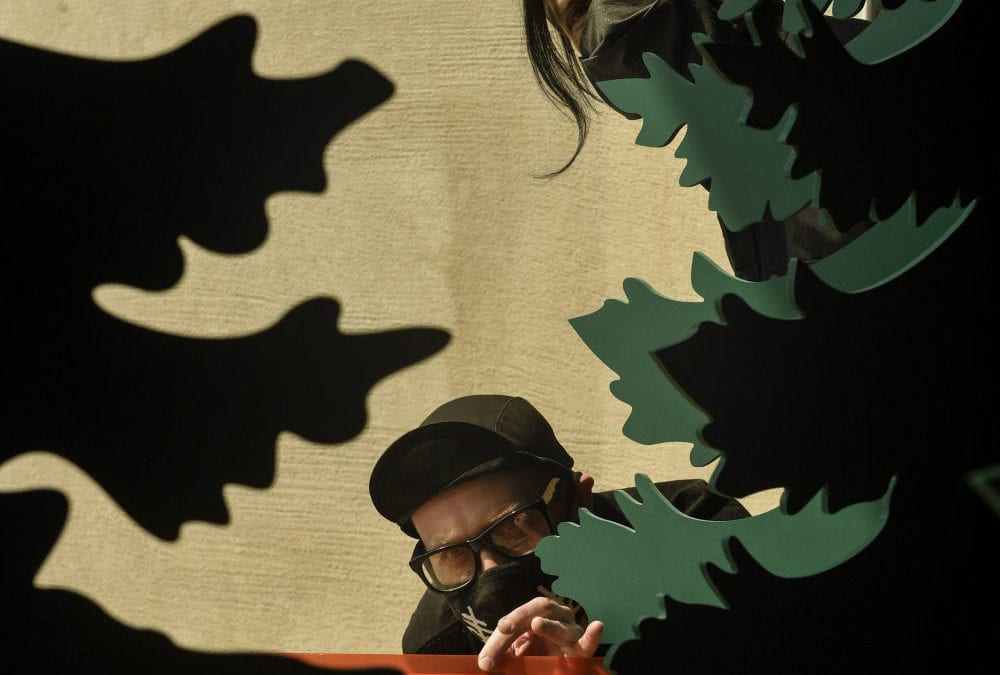In an age where facts are often at odds with the prevailing political winds, History Colorado is standing firm while scattering scraps of Denver’s past across the city.
“The Lost Book of Astrid Lee,” a self-guided, socially distanced, “episodic mystery quest,” is its industrial-powered fan.
The brainchild of Chris Getzan and Andrew Novick, the project launches Aug. 28 as an old-school scavenger hunt in a decidedly modern environment of pandemic restrictions and always-online citizens.
What sets it apart, its creators say, is that it’s a carefully crafted, in-person experience — not just an idea or product of the state’s historical society (though it’s certainly those, too). It’s also completely free and runs the entire month of September.
How to play
“The Lost Book of Astrid Lee” runs for free, Aug. 28-Sept. 30, centered around the History Colorado Center, 1200 N. Broadway. Visit historycolorado.org/lost-book-astrid-lee to pick a date, the number in your party, and one of three pick-up locations for your dossier, and the game will dictate the rest. Call 303-447-8679 for more information.
“I love doing puzzle rooms, but I’ve never created one,” said Novick, a noted pop-culture fiend who has programmed art-driven events and dinners across the city with Denver Art Museum, Denver Film, Casa Bonita and others. “But the idea of something open-ended, with no cap to the number of people, was really attractive.”
“We were trying to think of something that was safe, that people can do with their quarantine partners and that was mostly oudoors,” said Getzan, History Colorado’s public programs and events manager. “We’d had an experiential party planned at the Grant Humphries Mansion, so when that was canceled, I had this weird eureka moment.”
“The Lost Book of Astrid Lee” imagines a historical Denver resident named Astrid Lee, who began writing a book called “Always Something There to Remind Me.” This young historian “discovered another Denver. A Secret Denver,” the creators write. “A Denver where honeybees, your job, neighborhood streets and national borders, stories of movement and migration, yo-yos and experiments in democracy … are joined up with the legacies of historic Denver revolutionaries and reformers, art, comics, pioneer stories, poems, and messages from the future.”
Come again?
“It’s going to be like ‘Twin Peaks,’ ” said Getzan, referencing David Lynch’s surreal, beloved TV series of the early 1990s. “The murder of Laura Palmer is an excuse to go to Twin Peaks and meet all these characters, and this is a great excuse to have these puzzles and discover a bunch of historical facts and great free art.”
“Astrid Lee,” the first in a planned series called Always Something There to Remind Me, throws out other reference points — “The Goonies,” “Where in the World is Carmen Sandiego,” even political analyst Thomas Frank — but its focus is firmly local.
After registering for the weekly slate of activities, participants will pick up a “dossier” at History Colorado Center in downtown Denver (or one of two other locations) before following clues around the city. Along the way, they’ll come across new, original artwork from Lonnie Allen, Don Austin, Roxann Blue, Emily Hope Dobkin, Chandler Dolan, Cassandra Elaine, Thea Hunt, and Picture Me Here.
“Astrid Lee” also features contributions by the African Community Center, Denver Classroom Teachers Association, Food Bridge Denver, Kerrie Joy, Mary Grace Legg, Mile Hive Bee Club, David Moke & Denver Digirati, Rocky Mountain Pro Wrestling, Molina Speaks, “and a few surprisingly relevant historical special guest stars,” Getzan said.
“Between Chris and I, we probably know most of the creatives in town,” said Novick, who has been profiled for his bizarre pop-culture collections as much as his inspired events. “And even before this, I was looking for (a project) to invoke the skills and talents of people I know and places that I like. I’m always trying to get people to do something they haven’t done before, in a place they’ve never been.”
The opportunity for Getzan and Novick lies in Denver’s gentrification and its influx of new residents over the past decade. The city’s rapidly changing face, combined with a lack of context and knowledge about what came before, makes “Astrid Lee” both a civic-education project and safe, pandemic-proof fun.
Discovering something on one’s own helps it stick in a different way than being told about it, Novick said. It’s something Getzan also understands, having worked with Warm Cookies of the Revolution, a nonprofit “civic health club” that since 2012 has worked to engage and inform people in democracy with playful programming that spans instrument petting zoos and sit-downs with elected officials.
“I can Google something online, but that’s not really learning,” Getzan said. “This is a great way to invite folks into Denver. They’re part of the city’s history now, and its future is up to them.”
Getzan is also a diehard fan of professional wrestling, and as such enjoys a good narrative feint and a bit of knowing drama in his projects. Initial interviews for this article were floated as in-character chats about a genuine historical figure (Astrid Lee), even though History Colorado isn’t exactly hiding the fact that she’s a fictional amalgam.
The goal of all this is to send participants away with more questions than answers. Good questions, that is — the kind that drive them deeper into the Mile High City’s past, whether it’s Denver’s history of immigration, culture, workplace issues or civil rights.
But there will be help if people get stumped, Getzan and Novick said. The idea is to make this fun, not like a reality TV competition.
“It’s not a race,” Novick said. “There’s something new to solve and discover each week. People don’t have to join during the first week.”
“Unlike ‘Twin Peaks,’ you won’t be confused if you pick it up in the second season but didn’t see the first,” Getzan said. “And for this project, we’ve already started talking about the next season.”
This content was originally published here.

